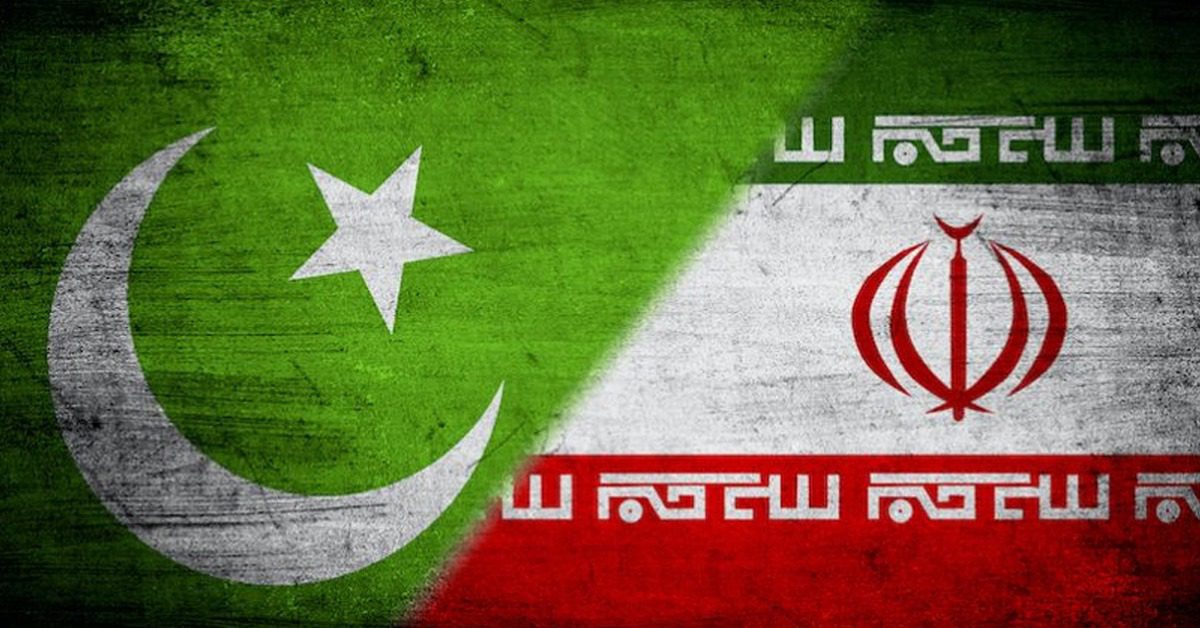Lisa Curtis, Director of the Indo-Pacific Security Program at CNAS, has cautioned that rising tensions between nuclear-armed neighbors Pakistan and Iran have prompted worries in the United States, with fears that the situation would spiral out of control.
Curtis, a seasoned international policy and national security specialist, explained in an interview with VOA Deewa that Iran’s recent entry into Pakistan was a punitive response to the twin suicide bombing on January 3, which was claimed by Dai’sh.
Curtis emphasized the importance of US concern for regional stability, warning of potential escalation. She warned of the danger of instability if current tensions in the area, especially those between Pakistan and India and with the Taliban, were not addressed correctly.
“Pak-India tensions are always high, and there are also tensions between Pakistan and the Taliban because they are avoiding cracking down on Tehreek-e-Taliban (TTP) terrorists,” she cautioned, expressing alarm about potential anarchy if not handled wisely.
She argued that Pakistan and Iran would have to defuse tensions, citing their apparent progress in that regard, with Pakistan discussing fraternal relations and Iran distancing Pakistani civilians and officials from terrorists. She feels this demonstrates their collaborative attempts to defuse the present heated situation.
Lisa responded to a query concerning Iran’s timing for its intervention into Pakistan, saying it was designed to send a worldwide signal. According to her, Iran intended to exhibit strength and resilience, reminding the world that it is still powerful and ready to resist any assault.
“Despite the recent terrorist attack, Iran sought to project strength, and unfortunately, Pakistan happened to be one of the targets,” she went on to say.
While noting Pakistan and Iran’s recent steps toward de-escalation, Curtis emphasized that the area remained at risk. “Baloch separatists in Iran that have been attacked could retaliate inside Pakistan and so what will happen then?” Curtis questioned, pointing out possible hazards despite continuous efforts to de-escalate.
Contrary to popular belief, Lisa emphasized Pakistan’s existing challenges while avoiding involvement in any regional conflict.
She highlighted key issues such as the country’s economic downturn, reliance on the IMF package, terrorist attacks, and upcoming elections, which come at a time when the establishment’s reputation has suffered as a result of its apparent control over the most populous party, Pakistan Tehreek-Insaf (PTI), and the imprisonment of its chairman, Imran Khan.
In response to a query on the future of Baloch militants, she emphasized the destructive nature of using terrorism. She emphasized that terrorist operations will make things worse for Baloch on both sides.
She stated that violent insurgencies will not serve the Baloch cause in any way, shape, or form by granting new rights or economic rewards.
Discussing China’s participation in the present predicament. According to the top expert, Chinese authorities may assume they have the authority to alter the situation. She claimed that, in the end, they cannot have as much influence over regional developments as they would want.
“China only has so much influence and power in this kind of volatile situation, it enjoys strong and traditionally close relations with Pakistan, as well as endeavours to maintain positive ties with Iran, but its influence has limits,” she said.
She stressed that, despite the strength of the China-Pakistan relationship, it is critical to understand the limitations of Chinese mediation. In her opinion, the efficiency of Chinese intervention may not fulfill expectations, especially in complicated and chaotic situations.
Sharing her thoughts on the approaching votes in Pakistan, she says that there is a general malaise about the political climate and elections, with little enthusiasm for the polls.
“There is a perception among the people of Pakistan that the establishment, seen as the centre of power, has picked the party of choice, and the popular PTI doesn’t stand much of a chance. Lisa expressed concern about the lack of confidence in the country’s political process.
She cited Pakistan’s economic crisis and excessive prices as additional challenges. She feels there is a pervasive sense of malaise throughout the country. In terms of security, she noted that TTP militants had become a source of concern for Pakistan’s security agencies.
“There is deep frustration among the Pakistan security establishment about their lack of ability to influence the Taliban to crack down on TTP terrorists on its territory,” she said.
Curtis feels that the Taliban’s autonomous posture, in which they do not feel obligated to answer to or meet Pakistan’s wishes, is novel and startling to the Pakistani establishment. “A new situation is emerging in the region, and Pakistan is navigating its stance in light of a newly confident Taliban that now has options beyond the Pakistan military establishment,” she went on to say.
The top security specialist is dissatisfied with the security situation in Khyber-Pakhtunkhwa (K-P) and Balochistan, and feels that one of the causes is the Taliban’s ascent. She emphasizes the shared ideological appeal between the Taliban and numerous other terrorist groups, arguing that this alignment of ideological principles helps these groups to operate more freely in Afghanistan since the Taliban’s rule provides them with a reasonably secure environment.
“The Taliban’s authority over Afghanistan has resulted in a lack of pressure on terrorist groups, which is counterproductive. It is backfiring in Pakistan, resulting in increased instability and Taliban-like influence in the region, affecting elections, the economy, and women and girls,” Curtis stated.
She stated that the Taliban regime’s mistreatment of women and girls in Afghanistan is having a significant impact on Pakistani women and girls, who are also suffering as a result of the Taliban’s backward fundamentalist worldview.

